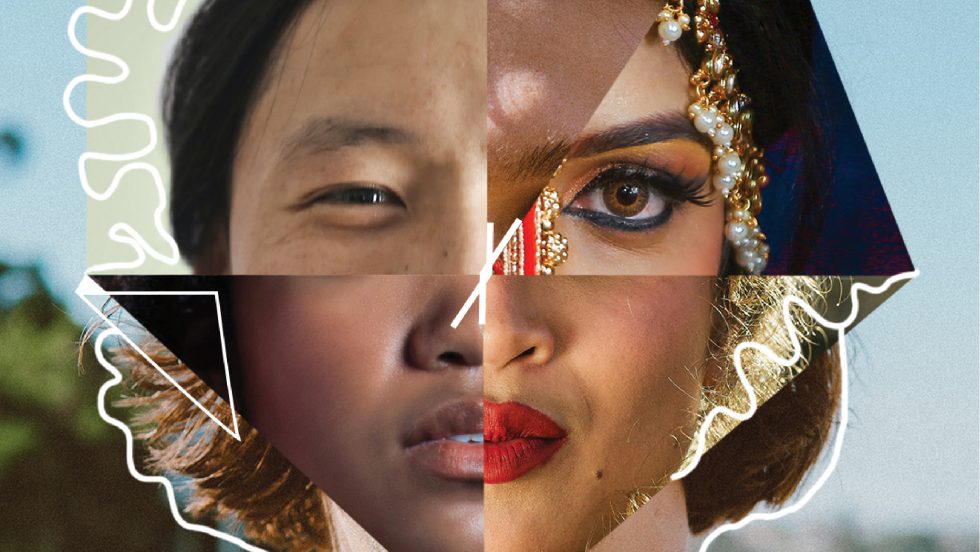
Jacqueline Jones LaMon, JD, current vice president of diversity, equity and inclusion, initiated the interdisciplinary 360 courses in the Fall 2019 semester when she was associate dean of the College of Arts and Sciences. The 360 courses have become popular with both faculty members and students—and a mainstay of the College of Arts and Sciences.
Food for Thought 360
Kathryn Krasinski, PhD, assistant professor of anthropology, taught the first 360 course, Food for Thought, giving students a chance to consider the food they eat and the foods eaten around the world from a wide variety of perspectives. Students got to prepare and sample food, but they also learned from lectures by instructors in the departments of anthropology, philosophy, political science, languages, environmental studies and science, as well as faculty from Swirbul Library and Levermore Global Scholars.
“The point of the class is to provide students with a variety of perspectives about food,” according to Dr. Krasinski. Her research focuses on the hunter-gatherer diet in Africa and North American cross-cultural food studies.
Water 360
Kellyann Monaghan, associate professor and chair of the Department of Art and Art History, taught a course on Water, which ran in the Spring 2020 semester. “This course is an exploration and examination of water in all aspects of our society and global environmental impacts,” she said. “Water has become a most vital concern of climate change and is a centrally faced issue for communities in our contemporary world.” Water was examined as interconnected through art, culture, history, politics, science, global concerns and the environment.
“Teaching the Water 360 course was out of my studio teaching comfort zone,” she said, noting that she usually teaches studio art majors. “The 360 courses are having great impact on our students as an eye-opening educational experience. And it is a wonderful learning experience for me. ”
Monaghan, acknowledging support from the Faculty Center for Professional Excellence in developing this course, recognized both Nathan Ross, assistant director for learning innovation assessment, and Erik Fox-Jackson, MA ’14, interactive learning designer, for their assistance in brainstorming course projects and assignments. Their feedback was very helpful in shaping the class, she said.
“When I registered for your course, I was looking for a course that would fulfill my art credit, and your Water course really struck my interest. Water is such an important aspect of my life, and I’ve realized so much about my water consumption and overconsumption. I spend the majority of my summer in Pennsylvania and water is such a major part of my day-to-day usage—swimming in the lake and spending almost all of my day fishing. This course has had a significant impact on my life and opened my eyes in terms of what art and water truly mean to me. I started noticing things I haven’t noticed before in terms of art and water and how they are linked together. Again, I just wanted to say thank you a million for an amazing semester and for making this course such an engaging and influential one—I can’t wait to take another course with you.”
—Leor Isaev, student in Water 360
Race 360
Under the leadership of the former director of African, Black and Caribbean Studies, Marsha J. Tyson Darling, PhD, this course examines the origins of race as an idea and a social construction. It explores the social, cultural, political and economic consequences of how race has been used as a tool for promoting inclusion and exclusion in the United States and other areas of the Western hemisphere, giving rise to personal, institutional and structural racism. Understanding “race” and the “racism” it spawned will empower our critical decision-making faculties
Q&A with General Studies Lecturer Lauren Rosenblum, PhD
Q: What appealed to you about the creation and implementation of a 360 course?
A: I research and write about interdisciplinary approaches to teaching and use an array of material in all of my classes. It was exciting to be able to engage with this interdisciplinary work outside of my traditional classes and academic outlets. It was such a great opportunity for me to explore a new, interdisciplinary topic and inspired me to update my other courses as well. I also looked forward to connecting with colleagues outside my program and learning about what they do.
In addition, I mostly teach first-year students. While I love this work, I also appreciated getting to know students from across the University at different stages in their academic careers.
Q: What kind of reaction did you get from students in your class?
A: Students were very excited about the class. They enjoyed getting perspectives from different professors and that almost every class was a new experience. Our class received the information literacy and oral communication learning goal, and students appreciated the different types of assessments than what they were used to (fewer exams and more exploratory work that was shared with their peers). The topic of our class was “party” as well. While, due to COVID-19, we were not able to party in the traditional sense, we kept up the spirit with a more experiential approach: I started each class with a party song; we made tea (for the Boston Tea Party) and showed off our snacks and found other ways to materially connect to class topics.
Q: What advantages are there for students in taking a 360 course?
A: Students were highly engaged in the class. Interdisciplinary work is very inviting. Most of the students found ways to connect with their major and interests, but also found new interests as well. They appreciated being able to connect with professors they may not otherwise encounter in their university experience. Also, the topic was the party! Students enjoyed the levity, while still being grounded in their academic work.
Q: What did you learn from the experience, maybe one major takeaway?
A: The experience further fortified the educational value of interdisciplinary approaches. As the Beastie Boys said, “You gotta fight for your right to party.”